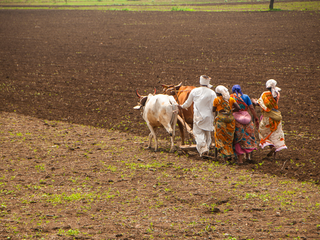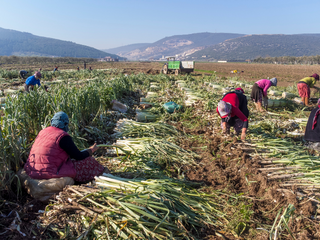
The Philosophy of Organic Farming: Cultivating Human Beings
Masanobu Fukuoka, a renowned Japanese farmer, believed that the ultimate goal of farming is not just about growing crops, but also about cultivating and perfecting human beings. In this blog post, we will dwell into his philosophy of organic farming, which emphasizes the inherent wisdom of life processes, the observation of natural cycles, and the connection between nature, environment, and the farmer.
Fukuoka's farming approach involves four main methods - no tilling, no chemical fertilizers, no weeding, and no pesticides. He trusts in the inherent wisdom of life processes and observes the cycles of nature and the natural functioning of the environment. Fukuoka believed that it is our responsibility to take care of the life of the next generation, and through organic farming, we can improve our lives and bring happiness.
The ultimate goal of farming is not the growing of crops, but the cultivation and perfection of human beings –Masanobu Fukuoka
Organic farming is a holistic approach that seeks to understand and work with the interconnectedness of nature. By adopting organic farming practices, we can cultivate healthier soil, plants, and animals. This process involves a deep appreciation of nature and an understanding of how the environment and human beings are connected.
One of the most significant benefits of organic farming is the production of healthy and nutritious food. Unlike conventional farming, organic farming avoids the use of synthetic pesticides, herbicides, and fertilizers, which can have harmful effects on the environment and human health. As a result, organic food is free of harmful chemicals and is rich in nutrients that promote good health and well-being.
Organic farming is not only good for the environment and human health, but it also brings happiness. When we return to organic farming, we reconnect with nature and gain a deeper appreciation for the gifts that it provides. The process of farming itself can be a source of joy and satisfaction, as we work with the natural rhythms of the earth and cultivate a deeper understanding of our place in the world.
In conclusion, organic farming is more than just a method of growing crops; it is a philosophy that seeks to cultivate and perfect human beings. By trusting in the inherent wisdom of life processes and observing the cycles of nature, we can improve our lives, promote good health, and bring happiness. Organic farming is a precious gift from mother nature, and it is our responsibility to preserve it for future generations. Let us embrace the philosophy of organic farming and cultivate a deeper appreciation for the interconnectedness of all things.


In conclusion, healthy foods are essential for maintaining a healthy lifestyle. Choosing a diet that is rich in whole grains, fruits, vegetables, lean proteins, and healthy fats can help reduce the risk of chronic diseases. Organic foods are a great choice for those who want to reduce their exposure to synthetic pesticides and fertilizers. Organic fertilizers provide plants with essential nutrients while improving soil health and reducing environmental damage. Overall, incorporating healthy foods into your diet and choosing organic options can help you live a healthier, happier life.
Leave a comments